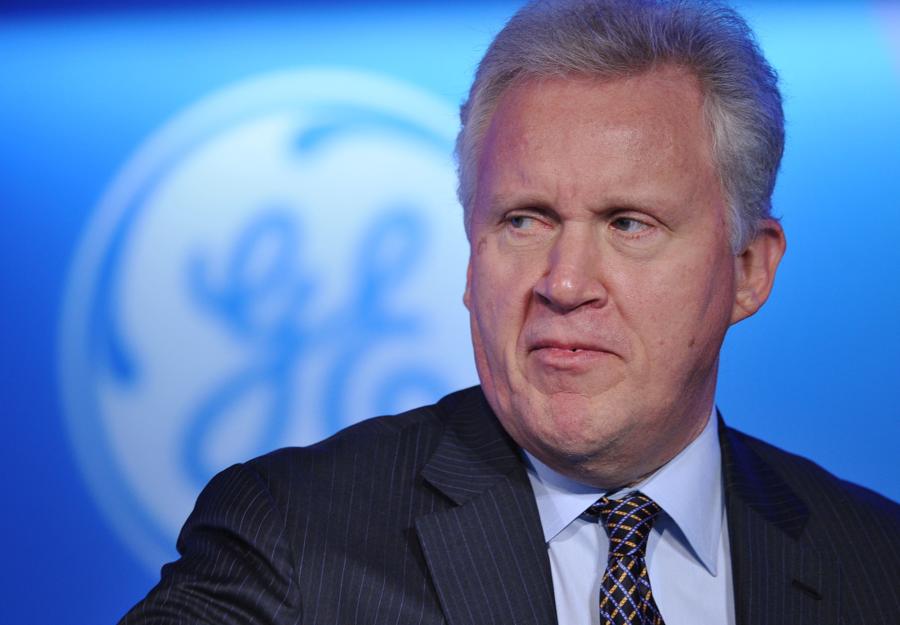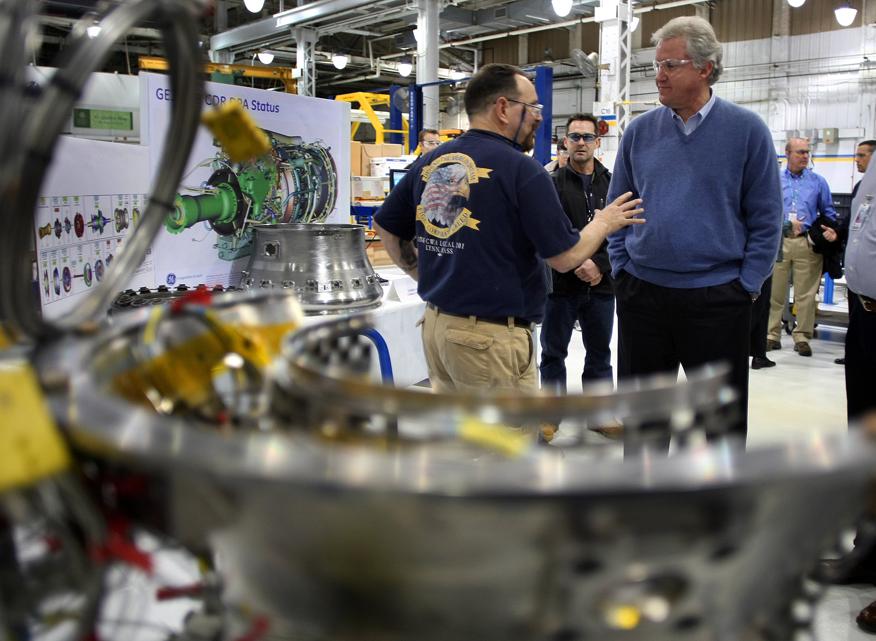

General Electric Co. wants to be a major civic player when it moves to Boston this summer, even if its new headquarters will be home to just 800 employees out of a workforce of 333,000.
“We want our presence to be felt,’’ chief executive Jeff Immelt said in an interview. “We want it to be meaningful . . . We would be disappointed if the town didn’t feel the difference of having GE here.’’
GE will use a local April 4 event to lay out its vision as a corporate citizen and to discuss what its operations here will look like after making the move from Connecticut.
Immelt, in an interview with reporters and editors on Friday at the Globe, said the company’s philanthropic focus will be education and community health, as it is now at its base in Fairfield, Conn. That’s expected to translate into assistance for local high schools, although Immelt wasn’t specific about which ones.
The CEO also declined to be specific about GE’s future headquarters site, other than to confirm the company wants to build something in the Seaport area that makes a strong visual statement. The company has picked a location on Farnsworth Street in the Seaport as temporary digs for its executives, who will start to arrive in August.
South Boston locations that GE has considered include the former Necco complex at 253 Summer St., overlooking Fort Point Channel; property owned by Procter & Gamble behind that building; and a vacant lot on Congress Street owned by the Massachusetts Port Authority.
GE has said it will bring about 200 corporate employees to the new headquarters, which will open by sometime in 2018. The rest will be a mix of employees for Current, GE’s new energy division, software developers, and other high-tech workers who could assist many of GE’s business lines. About 800 people work in Fairfield today, and about half of those are what Immelt considers to be corporate jobs.
This represents a return to Boston for Immelt, who graduated from Harvard Business School in 1982. He joined GE that same year, and he has had leadership roles in GE’s plastics, appliance, and health care businesses. He succeeded Massachusetts native Jack Welch in the company’s top job in 2001.
In June, Immelt unveiled the creation of a search committee to consider headquarters options. At the time, the announcement was linked to another round of business tax changes in Connecticut.
Boston emerged as the final choice in January, after GE was courted by a number of cities in a fierce competition. Immelt on Friday downplayed Connecticut’s tax policies as a reason for GE’s decision to leave the state, a place the company called home for four decades.
He also said the incentives offered by city and state officials in Massachusetts — a package valued at as much as $150 million, including property tax breaks and infrastructure grants — played a role but were not a deciding factor.
Instead, Immelt said, the decision was primarily about picking the right “ecosystem.’’ Under Immelt’s tenure, the $130 billion-a-year company has divested most of its finance and media businesses to focus on high-tech industrial work.
To amplify that shift, Immelt said, he wanted the company to be near Greater Boston’s startup culture and its thick cluster of colleges and universities.
“The only way to survive when you’ve been around 140 years is you’ve got to be constantly thinking about what the next iteration is,’’ Immelt said. “We really felt like the company was changing, and we wanted to be in the flow of ideas.’’
Staying in the Northeast was also important, because of GE’s existing operations in the region — it has nearly 5,000 people in the state — and its growing presence in Europe following its purchase of the French company Alstom’s energy business last year. That made relocating the headquarters to Silicon Valley impractical. However, GE already operates a digital programming center in San Ramon, Calif., to work on what’s known as the “industrial Internet,’’ a catchphrase used to describe how machines talk to computers and each other.
That West Coast hub, with its nearly 1,300 workers, is similar in focus to the high-tech work that will be established in Boston.
“We liked the technical vibe, the startup vibe in Boston,’’ Immelt said. “We felt like the company could have an impact here. I think it’s always important, not just what we can get, but what we can bring.’’
Jon Chesto can be reached at jon.chesto@globe.com. Follow him on Twitter @jonchesto.



